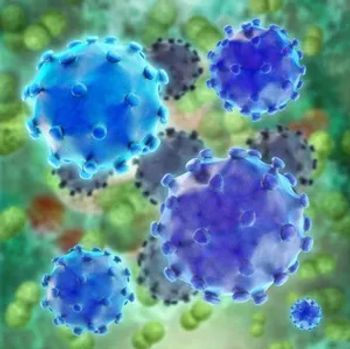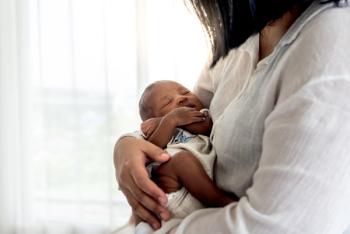
Study finds higher attrition rates among those with low incomes or from groups underrepresented in medicine

Study finds higher attrition rates among those with low incomes or from groups underrepresented in medicine

Hepatitis-associated emergency department visits and hospitalizations, liver transplantations, and adenovirus stool testing results in pediatric patients were not found to increase during the COVID-19 pandemic.

At the SPD 2022 47th Annual Meeting, we talk with Amy Paller, MD, about her panel session on Indications of AD, Alopecia, and Vitiligo

A look at what the Contemporary Pediatrics® team covered this week.

Ruling comes in cases of physicians serving in prison for convictions over prescription drugs.

A look at what the Contemporary Pediatrics® team covered this week.

The American Academy of Pediatrics statement on the Supreme Court overturn of Roe v Wade.

Recognition of the source of the brain-based visual disabilities is the key to the early intervention in affected children.

The annual WLSL event brings together hundreds of swim instructors across to world to hold life-saving swim lessons in the hopes of preventing childhood drowning.

Entrepreneur beats prices of supply chain wholesalers, PBMs, pharmacies, and insurers.

This week, the American Academy of Pediatrics updated their safe sleep recommendations and released the 2022 bright futures/AAP periodicity schedule for preventive pediatric health care. In part 1, we focus on the updates in sleep recommendations.

Data from Morbidity and Mortality Weekly Report showed that there was no demonstrated increase in pediatric hepatitis or adenovirus 40/41 above pre-COVID-19 pandemic baseline levels.

A look at what the Contemporary Pediatrics® team covered this week.

AMA has adopted a multi-prong strategy to try to counter lies while holding the person responsible to professional review.

Climate changes are threatening the health and well-being of all people, according to the American Medical Association.

A look at what the Contemporary Pediatrics® team covered this week.

The FDA recently announced an e-cigarette prevention campaign aimed at Native American and Alaskan Native youth using prominent social media sites and traditional media like billboards, radio, and TV.

Pediatric patients taking 4 or more medications were more likely to experience medication errors.

Current data about naloxone use in pediatric populations is extrapolated from adult studies.

Study finds financial, cultural barriers to care common among rural residents.

Survey shows little progress after four years of promises.

AI’s ability to quickly process and interpret large quantities of health data is a valuable tool for physicians.

Donna Hallas, a Contemporary Pediatrics® Editorial Advisory Board member, discusses the infant formula shortage.

Contemporary Pediatrics® Editorial Advisory Board member Donna Hallas discusses being a recipient of the NYU Distinguished Teaching Award.

Rachel H. Alinsky, MD, MPH, FAAP, spoke with Contemporary Pediatrics® about her newly released AAP policy statement advocating for the use of medically accurate, person-first terminology when discussing substance use.

Evinacumab phase 3 results show a 48% LDL-C reduction in children with homozygous familial hypercholesterolemia.

A look at what the Contemporary Pediatrics® team covered this week.

The Department of Health and Human Services did not notify the public by the May 16 deadline that the Public Health Emergency will be ending.

Since its approval for the treatment of medical refractory epilepsy in 2013, the closed-loop neuromodulation device has had its efficacy and safety confirmed in several pivotal studies and will now be assessed in focal epilepsy in the RESPONSE trial.

Investigators may have found a piece of the puzzle into what causes sudden infant death syndrome.